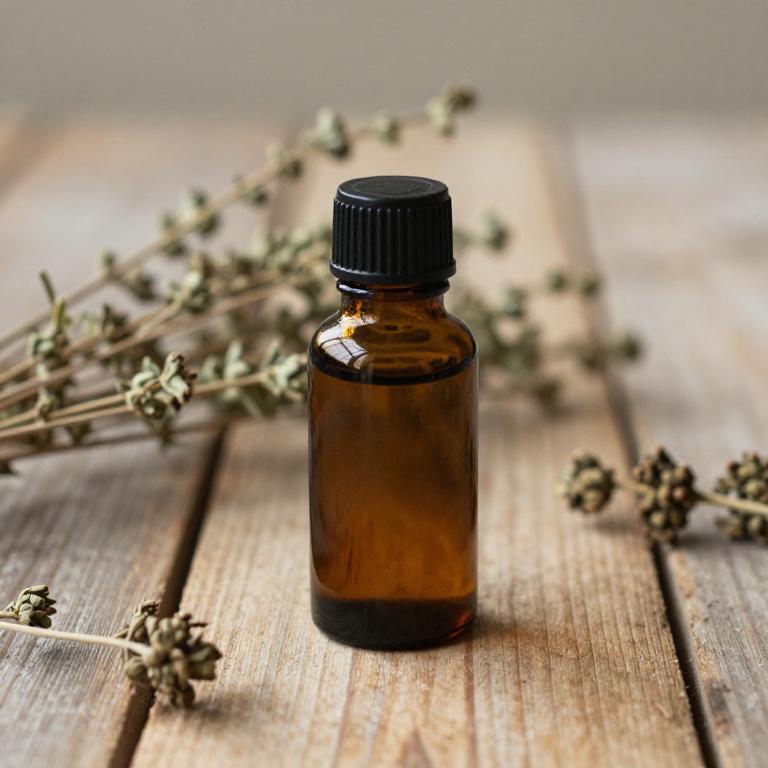10 Best Herbal Essential Oils For Inflamed Gums

Herbal essential oils have gained attention for their potential to alleviate inflammation in gums due to their antimicrobial and anti-inflammatory properties.
Oils such as tea tree, clove, and peppermint are commonly used because they contain compounds that can reduce bacterial growth and soothe irritated tissues. These oils can be diluted with a carrier oil and applied directly to the gums or used in mouth rinses for localized relief. However, it is important to use them cautiously, as undiluted essential oils can cause irritation or allergic reactions.
While they may offer complementary benefits, they should not replace professional dental care for persistent gum inflammation.
Table of Contents
- 1. Melaleuca (Melaleuca alternifolia)
- 2. Salvia (Salvia officinalis)
- 3. Oregano (Origanum vulgare)
- 4. Ceylon cinnamon (Cinnamomum zeylanicum)
- 5. Eucalyptus (Eucalyptus globulus)
- 6. Turmeric (Curcuma longa)
- 7. Thyme (Thymus vulgaris)
- 8. Yarrow (Achillea millefolium)
- 9. Rosemary (Rosmarinus officinalis)
- 10. English lavender (Lavandula angustifolia)
1. Melaleuca (Melaleuca alternifolia)

Melaleuca alternifolia, commonly known as tea tree oil, is a potent herbal essential oil derived from the leaves of the Melaleuca alternifolia plant, native to Australia.
It is widely recognized for its strong antimicrobial and anti-inflammatory properties, making it a popular choice for natural remedies. When used for inflamed gums, tea tree oil can help reduce bacterial growth and soothe irritation due to its ability to combat periodontal pathogens. However, it should always be diluted with a carrier oil before application to prevent skin irritation.
Incorporating tea tree oil into a dental care routine may offer a natural alternative for managing gum inflammation and promoting oral health.
2. Salvia (Salvia officinalis)

Salvia officinalis, commonly known as sage, is a medicinal herb whose essential oil has been traditionally used for its anti-inflammatory and antimicrobial properties.
The essential oil of sage contains compounds such as thujone, camphor, and cineole, which contribute to its ability to reduce gum inflammation and combat oral bacteria. When diluted properly, sage essential oil can be applied topically to the gums to soothe irritation and promote healing. It is often used in natural mouthwashes or as a complementary therapy in dental care routines.
However, due to its potency, it should always be diluted before use to avoid skin irritation or adverse reactions.
3. Oregano (Origanum vulgare)

Origanum vulgare, commonly known as oregano, is a versatile herb whose essential oil has been traditionally used for its potent anti-inflammatory and antimicrobial properties.
The essential oil of oregano contains high concentrations of carvacrol and thymol, which are known to reduce inflammation and inhibit the growth of bacteria that contribute to gum infections. When applied topically or used in a diluted form, oregano essential oil can help soothe inflamed gums and promote healing by reducing redness and swelling. However, due to its strong potency, it should always be diluted with a carrier oil before use to avoid irritation.
Incorporating oregano essential oil into a holistic oral care routine may offer natural support for maintaining gum health and preventing periodontal disease.
4. Ceylon cinnamon (Cinnamomum zeylanicum)

Cinnamomum zeylanicum, commonly known as cinnamon bark, contains essential oils that have been traditionally used for their antimicrobial and anti-inflammatory properties.
The essential oils derived from this plant, particularly cinnamaldehyde and eugenol, help reduce inflammation and infection in the gums, making them beneficial for oral health. When used in diluted form, these oils can be applied topically to soothe sore and inflamed gum tissues. They are often incorporated into mouthwashes or dental care products to support gum health.
However, it is important to use these oils cautiously to avoid irritation or allergic reactions.
5. Eucalyptus (Eucalyptus globulus)

Eucalyptus globulus, commonly known as mountain gum or blue gum, produces a highly aromatic essential oil that has been traditionally used for its antimicrobial and anti-inflammatory properties.
When applied topically, eucalyptus globulus essential oil can help reduce inflammation and soothe irritated gums due to its active compounds like cineole and terpinen-4-ol. However, it is important to dilute the oil properly with a carrier oil to avoid skin irritation, as it can be quite potent. This essential oil is often incorporated into natural mouthwashes and oral care products to support gum health.
While it may provide relief for mild gum inflammation, it should not replace professional dental treatment for more severe conditions.
6. Turmeric (Curcuma longa)

Curcuma longa, commonly known as turmeric, contains curcumin, a powerful anti-inflammatory and antioxidant compound that has shown potential in reducing gum inflammation.
Essential oils derived from Curcuma longa may help alleviate symptoms of gingivitis by inhibiting the growth of bacteria that contribute to periodontal disease. These oils can be used in diluted form as a natural remedy to soothe inflamed gums and promote oral health. However, it is important to consult with a dental professional before using essential oils, as improper use can cause irritation or other adverse effects.
Overall, Curcuma longa essential oils offer a promising complementary approach to managing gum inflammation when used safely and appropriately.
7. Thyme (Thymus vulgaris)

Thymus vulgaris, commonly known as thyme, is a versatile herb that contains essential oils rich in compounds like thymol and carvacrol, which exhibit strong antimicrobial and anti-inflammatory properties.
These essential oils can be beneficial for inflamed gums due to their ability to reduce bacterial growth and soothe irritated tissues. When used in diluted form, thyme essential oil can be applied topically to the gums to help alleviate swelling and discomfort. However, it is important to dilute the oil properly with a carrier oil to avoid irritation or chemical burns.
Thymus vulgaris essential oils are often used in natural dental care routines as a complementary therapy to support gum health.
8. Yarrow (Achillea millefolium)

Achillea millefolium, commonly known as yarrow, contains essential oils that have been traditionally used for their anti-inflammatory and astringent properties.
These essential oils, particularly those rich in compounds like chamazulene and bisabolol, can help reduce inflammation and soothe irritated gums. When used in oral care products or diluted properly for topical application, yarrow essential oil may offer relief from gum inflammation and promote healing. However, it should be used with caution, as undiluted essential oils can cause irritation.
Overall, achillea millefolium essential oils show potential as a natural remedy for supporting gum health when used appropriately.
9. Rosemary (Rosmarinus officinalis)

Rosmarinus officinalis, commonly known as rosemary, produces essential oils that have been traditionally used for their anti-inflammatory and antimicrobial properties.
These essential oils contain compounds such as cineole and camphor, which can help reduce gum inflammation and combat bacterial infections that contribute to periodontal disease. When used in diluted form, rosemary essential oil can be applied topically to the gums to soothe irritation and promote healing. It is often recommended as a natural alternative to conventional treatments for mild gum inflammation.
However, it is important to consult with a healthcare professional before using essential oils, as they can be potent and may cause adverse reactions if not used properly.
10. English lavender (Lavandula angustifolia)

Lavandula angustifolia, commonly known as English lavender, is a widely used herb in aromatherapy and natural medicine, and its essential oil has shown potential benefits for inflamed gums due to its anti-inflammatory and antimicrobial properties.
The oil contains compounds like linalool and linalyl acetate, which help reduce swelling and irritation in the gums, promoting faster healing. When diluted properly, lavender essential oil can be applied topically to the gums as a soothing remedy, offering relief from discomfort caused by gingivitis or periodontal disease. Its calming aroma also helps reduce stress, which is a known contributor to gum inflammation.
However, it is important to consult a healthcare professional before using essential oils, especially for those with sensitive oral tissues or existing dental conditions.